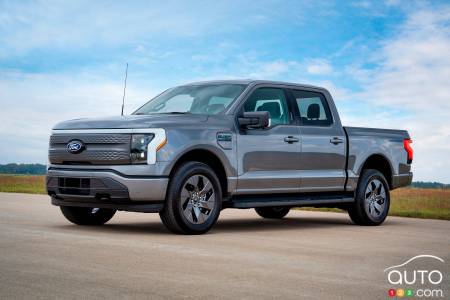Ford CEO Jim Farley didn't mince words when he described Chinese electric vehicles (EVs) as an “existential threat”, highlighting their rapid advance on the market. This statement came after he tested an SUV from China's Changan brand during a competitive review.
An unexpected shock for Ford executives
In early 2023, Farley and Ford CFO John Lawler traveled to China to test drive an electric SUV made by Changan Automobile, with whom Ford has a joint venture. What started out as a simple test drive turned into a powerful realization for the executives. According to the Wall Street Journal, John Lawler, seated next to Farley, dropped a line that carried a lot of meaning: “Jim, it's not like it used to be. These guys are way ahead of us.”

An existential threat for Ford
Such was the shock of this discovery that Farley reportedly described the situation as an “existential threat” in conversation with Ford board member and former Goldman Sachs executive John Thornton. Although it’s not known what exact Changan model they drove, the trial was enough to rattle Ford's management.
With the impressive rise of Chinese manufacturers in the electric vehicle sector, Western companies face a major challenge. While tariffs on Chinese EVs offer temporary protection for Ford, the technological advances behind those models are of serious concern for the American automaker.
A mixed strategic response
Despite the threat, Ford is proceeding cautiously with its expansion into electric vehicles. Jim Farley recently announced that Ford would launch a $30,000 EV by 2027. This smaller vehicle will be designed to compete with Chinese models and is expected to be profitable.
Backtracking on electric ambitions in Europe
That project aside, Ford has scaled back some of its EV ambitions. In July, the automaker announced that plans to become fully electric in Europe by 2030 were no longer feasible. It will thus continue to offer combustion engine, hybrid and electric vehicles there. In August, the brand also cancelled plans to produce a three-row electric SUV by 2025, and it postponed the release of a large electric truck from 2025 to 2027.






